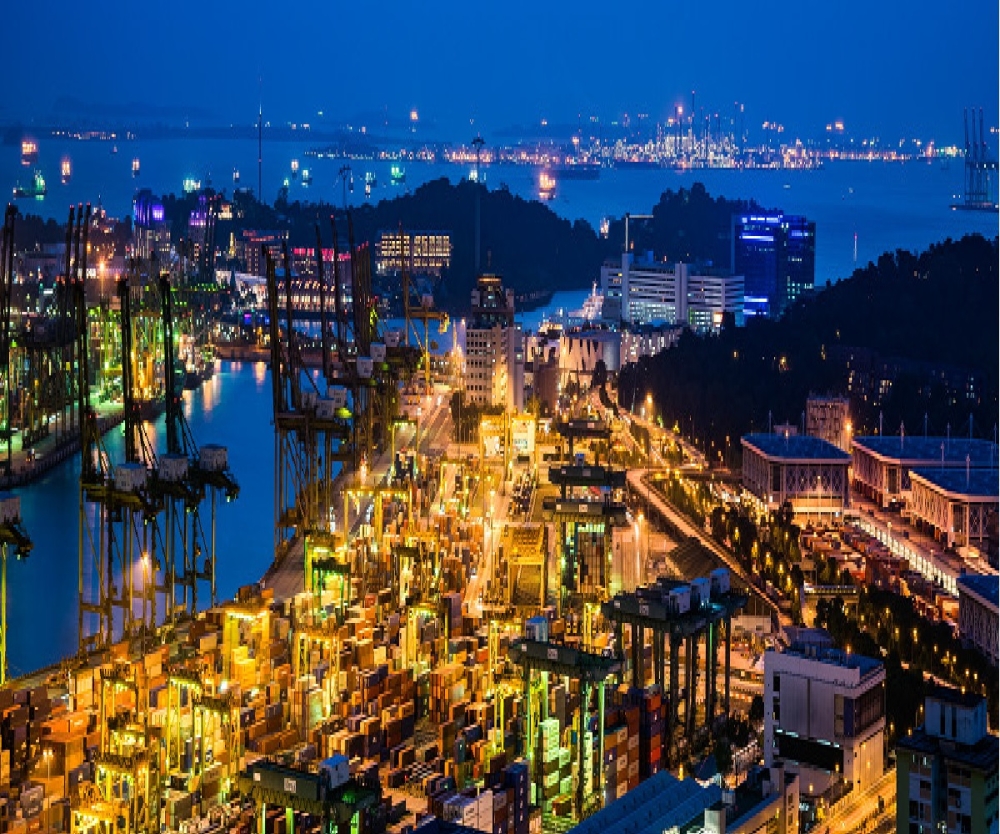Since early 2024, PSA Singapore (PSA), an important worldwide transshipment center, has improved its operations dramatically to handle greater traffic and lessen the effects of disruptions to the global supply chain. This endeavor include reactivating berths and yard space at Keppel Terminal, commissioning new berths at Tuas Port, and strengthening its frontline capacity. This has led to a recent decrease in the average wait time of two days or less at the port. The Red Sea issue and other continuous disruptions have not lessened supply chain volatility in terms of demand and effects. PSA is dedicated to helping its clients during these tumultuous times.
Despite using all of the available berths, PSA has experienced significant concentrations of vessels on some days and longer wait times due to heavy berth demand and off-schedule vessel arrivals since the beginning of 2024. Extended transshipment container dwell times have been necessitated by larger call sizes, requiring boats to remain longer. Significant changes in vessel arrival patterns and call sizes have resulted from the Red Sea crisis, which has indirectly reduced global shipping capacity, congestion at upstream and downstream ports, and shipping lines skipping ports to recover their schedules.
Oneg "As our flagship project, PSA Singapore is dedicated to meeting the challenges of ongoing volatility and aligning our port's development and handling capacity with our customers' needs," said Kim Pong, Group CEO of PSA International. Global shipping and trade have been severely impacted by the Red Sea issue, and we anticipate that this difficult scenario will continue, possibly causing port congestion to spread from Asia to Europe. Through Node-to-Network efforts, PSA is forming partnerships with customers and stakeholders in order to improve overall network efficiency and better coordinate amongst ports. In order to increase our worldwide footprint and improve cargo flows, we are also developing our port networks and ecosystems. In an ever-evolving global landscape, we are steadfast in our commitment to working together with our clients to address their specific needs by utilizing our facilities, supply chain skills, and people.
Approximately 90% of container ships have arrived at Singapore's port after they were scheduled to arrive, up from an average of 77% in 2023. Furthermore, due to increased demand and container re-handling—where some containers are unloaded and reloaded dependent on discharge port, weight, and vessel stabilities—vessel port stays at PSA have grown by 22% when compared to the same period last year.
Because to the high vessel usage brought on by the Red Sea scenario, container re-handling on mega vessels berthed at PSA increased by 8% in the first half of 2024 compared to the previous year. Even though PSA is maintaining production, this circumstance has resulted in longer vessel port stays, which have an impact on the berthing time for arriving boats.
However, the impact of these disruptions has been lessened thanks to PSA's preemptive measures and tight coordination with shipping lines and other stakeholders. In order to ensure a smooth port environment, the PSA Singapore Management team has worked closely with unions and has received strong support from the Singaporean Ministry of Transport and Maritime and Port Authority.
In order to minimize berth waiting times and other effects of continuous disruptions, such as vessel call diversions from crowded ports in the area, PSA will continue to assist shipping lines in navigating service outages and optimizing their network configurations.
When comparing the first half of 2024 to the same time in the previous year, PSA transported 7% more container volumes. PSA is dedicated to long-term objectives, such as increasing capacity and capabilities through automation and smart technology, despite the continuous market instability.
PSA's Tuas Port now runs nine berths and will add two more by the end of this year, in addition to reactivating berths and yard space at Keppel Terminal. Having already hired up to 1,500 frontline staff in 2024 to improve operational capabilities, PSA intends to grow Tuas Port going forward and to keep hiring frontline workers at all terminals.
In the midst of worldwide supply chain interruptions, PSA has provided value-added services to logistics service providers and beneficial cargo owners in order to improve supply chain visibility, expedite handling, and lessen the effects of delayed shipments. A number of initiatives, including quick connection management, expedited delivery, and priority discharge, assist stakeholders in customizing solutions to meet their unique requirements.
In spite of these obstacles, PSA is committed to working with all relevant parties—including governmental agencies—to improve service quality, dependability, and effectiveness as operations grow larger in the future.

Categories

Magazine Editions



















